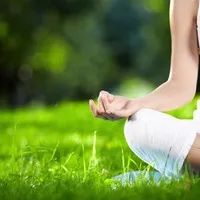Resolutions for Self-Care
You are the Bows
Lebanese poet Kahlil Gibran wrote to parents: “You are the bows from which your children as living arrows are sent forth.” The imagery of a rounded bow conjures up a sense of strength and movement. The further one can stretch the bow, the farther that arrow can fly. And yet, some parents feel so stretched by the relentless demands of work and errands, school events, family obligations, and volunteering, that a snapping point feels imminent.

Surely that’s not what Gibran meant, but it does bring up a good point—we all have a limit. So when you open up your planning calendars, and start jotting down that to-do list, remember we all get just 24 hours in a day, just seven days in a week, and after about four of those, we’re already falling into another month.
Resolutions for Self-Care
While we set those intentions for our hopes for the fresh year ahead of us, it’s always wise to remember that less is more. For several years, one of my perennial New Year’s resolutions was to take up silent meditation as part of my self-care.
After several failed attempts to sit in serene silence for an hour each morning, I inevitably shrunk my initial goal of a full hour to embarrassing crumbs of time, snatching a few moments where and when I could. As a single parent, time was a precious commodity. I tried to meditate in waiting rooms, while falling asleep at night or even sitting at the kitchen table procrastinating sifting through that ominous stack of bills crying out to be paid.
But I knew I wasn’t kidding anyone, least of all myself. This wasn’t meditating, not the kind I wanted. And then at a TEDx event in Bozeman a couple years ago, I heard a speaker challenge the audience to a 21-day challenge. If you want to develop a new habit, he said, commit to 21 days. He encouraged us to pick anything we wanted, dedicate three weeks to it and watch a new habit form. I knew immediately which habit I wanted to pick up and dust off again: meditation.
Creating a Meditation Practice
Meditation offers numerous and well-documented health benefits—all of which I knew would enhance my personal  life as well as my professional work with Montessori teaching and administration. Hugh Jackman claims that meditation changed his life. “In meditation, I can let go of everything. I’m not Hugh Jackman. I’m not a dad. I’m not a husband. I’m just dipping into that powerful source that creates everything. I take a little bath in it.”
life as well as my professional work with Montessori teaching and administration. Hugh Jackman claims that meditation changed his life. “In meditation, I can let go of everything. I’m not Hugh Jackman. I’m not a dad. I’m not a husband. I’m just dipping into that powerful source that creates everything. I take a little bath in it.”

If meditation was working for Hugh Jackman, I told myself, I could certainly give it another shot. Whatever he was taking a bath in sounded like a good thing. I started—first by following along with recorded instructions that told me to follow my breath, then by playing soft, ambient music and eventually I could embrace pure silence. In the beginning, I couldn’t sit still for longer than a few minutes if it saved my life. My stomach was tight, and my mind was racing.
Despite my stop-start efforts, a regular habit didn’t consolidate for me in those first twenty-one days, but I had planted a powerful seed. Over months, I watered that seed just enough - by asking questions of friends who did meditate regularly, reading more about it, by preparing an environment for my practice, internally and externally -- and it did start to take root and become a routine I depend upon. Some days I can only spare ten minutes, other days an hour, but it is a time that I now anticipate with pleasure and gratitude.
Strength in Flexibility
If we adults are the bows that Gibran described, what are bows made from? Wood that is strong enough to bend without breaking. And those arrows we send forth? Our projects, ideas, work, goals, everything we birth into the world - not the least of which includes our children. In reflecting on Gibran’s message to parents, I notice that as the bows, we are both active and passive, just as Montessori taught her teachers to be. Active in that we must bend to launch the arrows, passive in that they are the ones springing forth into the world.
In Montessori’s words: “There is a constant interaction between the individual and the environment. The use of things shapes man, and man shapes things. This reciprocal sharing is a manifestation of man’s love for his surroundings. Harmonious interaction – when it exists, as in the child, represents a normal relationship that should exist between the individual and his surroundings. And this relationship is one of love.” Education and Peace
So whatever new habit you are striving to create, I encourage you to start from a place of love. Start small, be gentle with yourself, and set up an environment for your success. It may take several tries, but persistence will reward you in the end.




















